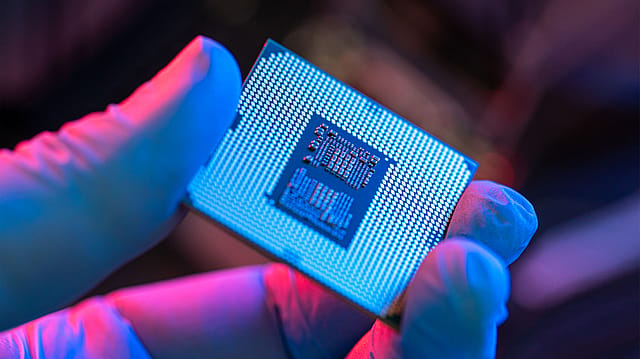Maharashtra approves Adani-Tower Semicon proposal; centre’s nod awaited
ADVERTISEMENT

In a significant boost to India's ambitions in the semiconductor sector, Israel-based Tower Semiconductor has partnered with the Adani Group to establish a $10 billion semiconductor fabrication plant (fab) in Panvel, Maharashtra. The proposed facility, which can play a crucial role in India’s dream of becoming a semiconductor nation, is currently awaiting approval from the Ministry of Electronics & IT (MeitY) for a 50% incentive on a pari-passu basis under the India Semicon Programme. Meanwhile, Maharashtra's cabinet committee has already given its green light to the project, signalling strong regional support.
A pure-play foundry, Tower Semiconductor is among the top 10 global foundry players and has fabrication facilities in Israel, Europe, the US, and Japan, providing analog semiconductor solutions for communication, automotive, consumer, medical, industrial, and aerospace and defence sectors. Over the last decade, in 2014, 2021, and 2023, the company has made fab capacity investments in Japan, Italy, and the USA. Tower Semiconductor’s latest fabrication capacity expansion project was to acquire and own 400nm wafer-size analog manufacturing capacity at Intel’s New Mexico Fab with a $300 million investment.
“Tower Semiconductor is very strong in analog chips, which are used in various domains. For instance, for communications inside the phone, digital-to-analog converters, analog-to-digital converters, telecom towers, to name a few. Whenever there is a non-digital kind of application, you will need an analog or mixed signal, resulting in a huge demand for these chips,” explains Arun Mampazhy, an independent semiconductor analyst.
January 2026
Netflix, which has been in India for a decade, has successfully struck a balance between high-class premium content and pricing that attracts a range of customers. Find out how the U.S. streaming giant evolved in India, plus an exclusive interview with CEO Ted Sarandos. Also read about the Best Investments for 2026, and how rising growth and easing inflation will come in handy for finance minister Nirmala Sitharaman as she prepares Budget 2026.
According to Devendra Fadnavis, Deputy Chief Minister of Maharashtra, the proposed semiconductor fabrication plant will involve a total investment of ₹83,947 crore (approximately $10 billion USD). This investment will be distributed in two phases: ₹58,763 crore for the first phase and ₹25,184 crore for the second phase. Initially, the facility will have a wafer production capacity of 40,000 wafers per month in Phase 1, with plans to increase this capacity to 80,000 wafers per month upon the completion of Phase 2.
“While it has been learned about Maharashtra government’s announcement in respect of another fabrication facility by Tower Semiconductor of Israel in a joint venture with Adani Group, we will wait for a formal announcement from the Indian Semiconductor Mission,” says Anurag Awasthi, Vice President, India Electronics and Semiconductor Association (IESA).
Experts note that under the Semicon India Programme, the government allocated a financial outlay of ₹76,000 crore, which is expected to be fully utilized by the projects already approved. These include Tata Electronics' semiconductor fabrication plant (fab) and a testing and packaging plant with investment commitments of ₹91,000 crore and ₹27,000 crore, respectively, as well as $2.7 billion (approx. ₹22,687 crore) for US chip giant Micron's Assembly, Testing, Marking, and Packaging (ATMP) facility, CG Power's ₹7,600 crore Outsourced Semiconductor Assembly and Testing (OSAT) unit, and the recently approved ₹3,307 crore Kaynes OSAT facility. The government will need to introduce another round of incentives to support additional proposals.
Tower Semiconductor has been pursuing opportunities to establish semiconductor fabrication capabilities in the country, since 2007. The company, under the chip consortium ISMC, had previously applied under the Semicon India Programme announced in December 2021. However, the proposal did not receive approval from the Indian government, largely due to uncertainties surrounding Intel's plan to acquire Tower Semiconductor—a deal that was ultimately terminated due to a lack of regulatory approvals.
Industry experts view Tower Semiconductor’s proposal as a win for India’s semiconductor ambitions, as it is an established fab with Manufacturing Grade Technology. Under the Semicon India Programme, MeitY has mandated manufacturing-grade technology as a prerequisite for approving any semiconductor fab proposal, given this is a highly technical industry, and only a few players in the world have the expertise and technological know-how. This is a reason why Anil Agarwal led Vedanta’s semiconductor fab proposal in a joint venture with HonHai (Foxconn) is believed to have not received approval from the government. For the Tower Semiconductor–Adani Group proposal, it will be much easier for Tower Semiconductor to transfer technology to the India site and commence operations.
Once operational, this facility is expected to make a substantial contribution to India’s semiconductor manufacturing sector, addressing both domestic and international demand. “Another high-end fabrication facility will not only herald exponential growth of the industry but also generate direct as well as indirect jobs, foster competition, facilitate innovation, bring in more expertise, as well as align with the stated goals of India’s digital economy trajectory,” adds Awasthi.
The third edition of Semicon India is scheduled from September 11–13, 2024, which will be inaugurated by Prime Minister Narendra Modi. Sources close to the ministry have confirmed the government might seek approvals for expanding incentives and approve some of the projects, including the Tower-Adani proposal, soon.
